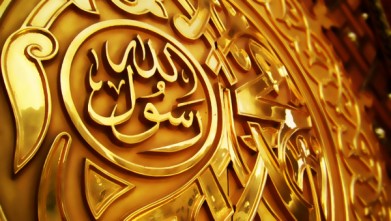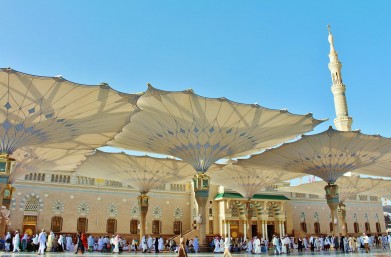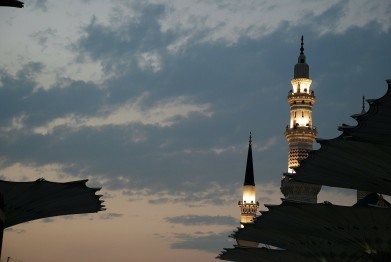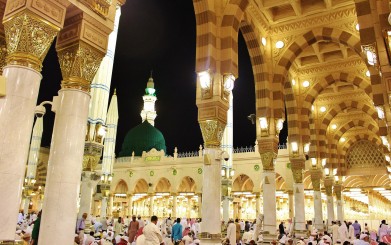“Do not trouble yourself! Indeed I am not a king. Rather I am merely the son of a Qurayshi woman who eats dry meat.”
The Simplicity of the Prophet Muhammad
Whether you live in a “first world” country or not, everyone has problems. As humans we have a constant want. No matter how wealthy one becomes, the itch to want more does not go away.
The Prophet Muhammad peace be upon him was a simple man. He ate from whatever was available, sat on the floor without hesitation, did not require salutes from an army, and was not one who chased the material of this world. One day a man was so nervous to meet the Prophet Muhammad peace be upon him. The Prophet responded
(Ibn Maja)
He always emphasized his humanity and admonished people who over-revered him. He said:
“Do not over praise me as the Christians over-praised Jesus the son of Maryam. Indeed, I am only a slave. So call me the Slave of Allah and His Messenger.”
(Bukhari)
The Prophet was not one who chased this world, rather he found joy in being among those who were less fortunate. Being in the presence of the poor, orphans, and weak has an impact on the heart and the way one views the world. It creates a sense of minimalism and thankfulness for the simple things in life that most take for granted. The Prophet peace be upon him said:
“My Lord – the Mighty and Majestic – gave me the choice that the valley of Makkah be filled with gold, but I said: No! O Lord. However, grant food to me one day, and hunger the day after. So when I am hungry I humble myself before You and remember You, and when I am full, I am grateful to You.”
(Tirmidhi)
The Prophet’s simplicity did not disappear when he became the undisputed leader of the Arabian peninsula at the end of his Prophetic career. His Companion Umar once visited him and saw him sleeping on a mat of branches. Umar could not hold back his tears and stated:
"O Messenger of Allah, how can we allow you to live like this? Look at the kings of Roman, Persia. Look at how they live. Surely O Messenger of Allah, you deserve better. The Prophet peace be upon him responded: O Umar, is this why we are here for? O Umar, aren’t you happy that they have this ‘Dunia’ (this life) and we have the ‘Akhira’ (the afterlife)?"
(Bukhari)
There is more to life than the gathering of material things. The example of the Prophet Muhammad peace be upon him teaches us that materialistic things are not prohibited, but they should not hinder us from our ultimate purpose. We are not in this world forever, we came in with nothing and will leave with nothing. The Prophet Muhammad peace be upon him stated:
“A wise man is the one who calls himself to account (and refrains from doing evil deeds) and does noble deeds to benefit him after death, and the foolish person is the one who subdues himself to his temptations and desires and seeks from Allah the fulfillment of his vain desires.”
(Tirmidhi)
He also said:
“Remember the destroyer of worldly pleasures (death) frequently; none will remember it (meaning death) while in hardship but will feel ease and while at ease but will feel disturbed.”
(Tirmidhi)
The remembrance of death puts everything into perspective. The things we bicker over, the amount of money in our bank account, our status, entertainment, and egos become so insignificant. No matter how much you beautify your face and hair every morning, you will one day sleep in the dirt. No matter how much you beautify yourself in clothes, you will one day be buried in a white shroud. No matter how much you love being around people, you will one day be buried all alone. Think to yourself, what am I doing here? What is my ultimate goal in this short life? What will happen after I die? What legacy will I leave behind? Remembering death helps us live a life based on the things that really matter, our relationship with God and our loved ones. Remembering death transforms one to be selfless and always looking to benefit others, even when there seems to be no point to it. The Prophet peace be upon him said:
“If the Final Hour comes while you have a palm-cutting in your hands and it is possible to plant it before the Hour comes, you should plant it.”
(Ahmad)
Ask yourself, what is it that you really need in life? What are the most important things to you? Put down your electronic device and the insignificant things that are distracting you from what is really important to you. The greatest gift you have been given is life, take a moment and reconnect with God your Creator. Islam is the straight path that leads one directly to God.
Related Articles
Various of subjects and articles
A Brief Biography of Prophet Muhammad (part 2 of 2): The Madinan Period
Objectives: · To understand how the first Islamic state was established.
Introducing the Prophet of Mercy
For mercy there was sent a Prophet. Not only to show it, preach it, and teach it, but to be it: "We have only sent you as a mercy to the worlds." (Al-Anbiya’ 21: 107)
A Brief Biography of Prophet Muhammad (part 1 of 2)
Objectives: · To understand the influences in Prophet Muhammad’s early life. · To understand the political situation at the time. · To realise and ponder the difficulties suffered by the first Muslims.
Miracles of Prophet Muhammad
Muslims believe that God sent many prophets throughout history to guide humanity. They taught people about the pure creed of belief in the One God, ways to worship Him and how to lead righteous lives keeping in mind our purpose in life. The prophets also informed humanity of future events and things unseen, such as the Day of Resurrection and the l...
12 Proofs that Prophet Muhammad was a True Prophet
My brothers and sisters everywhere! With this essay, I am not singling out the adherents of Islam - to which I ascribe - but rather I am writing this essay to every man and woman throughout the whole world. I ask Allah that He facilitates that this essay reaches every ear, falls under the sight of every eye, and is understood by every he...
Who Is the Prophet Muhammad ?
Muhammad was born in Makkah in the year 570 Since his father died before his birth and his mother died shortly thereafter, he was raised by his uncle who was from the respected tribe of Quraysh. He was raised illiterate, unable to read or write, and remained so till his death. His people, before his mission as a prophet, were ignorant o...

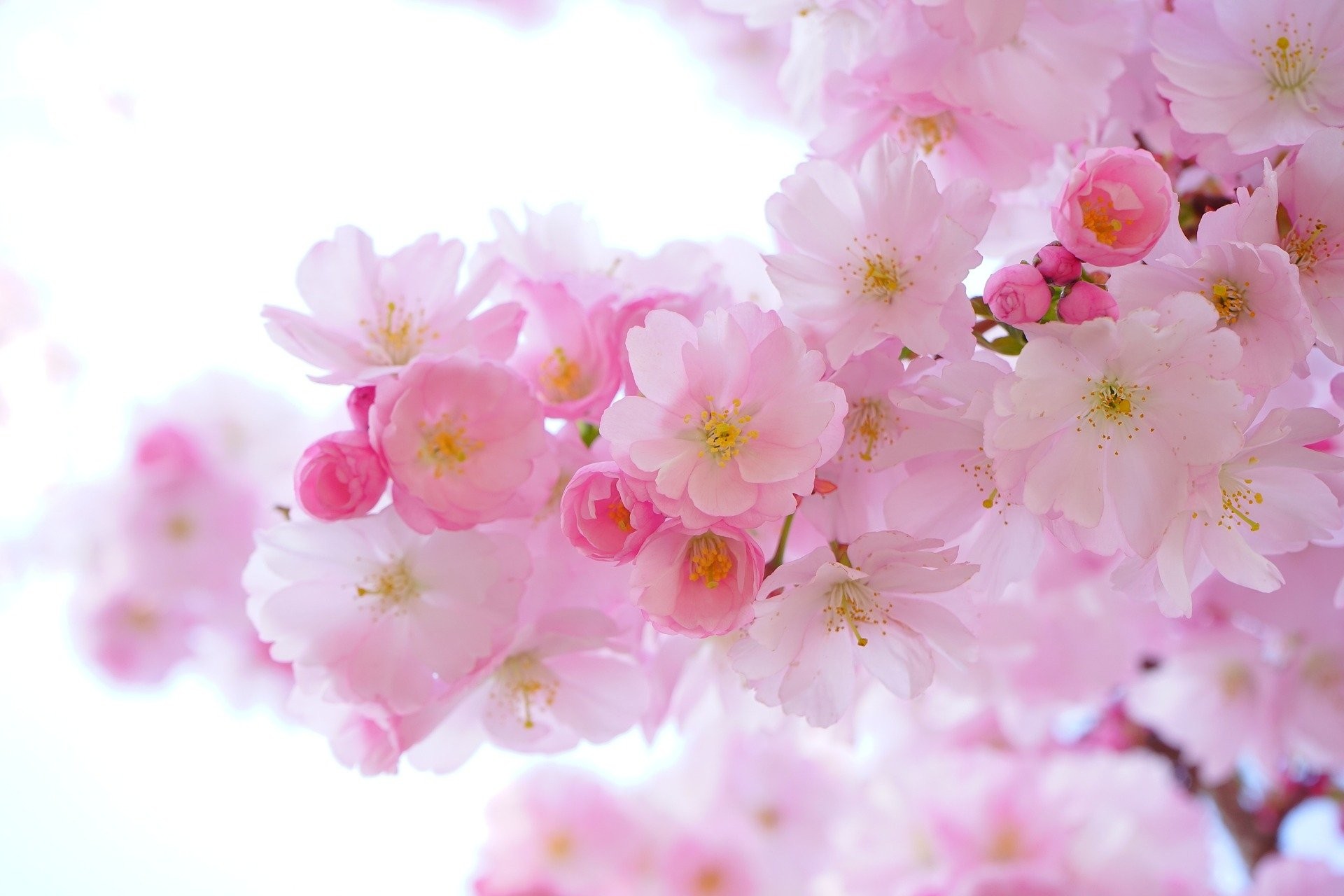
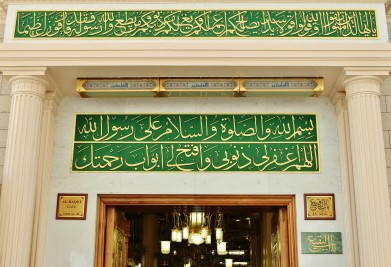
 Read More
Read More
